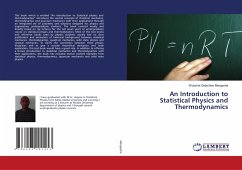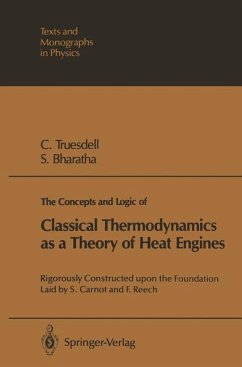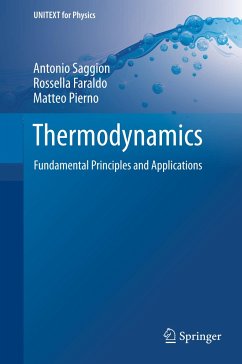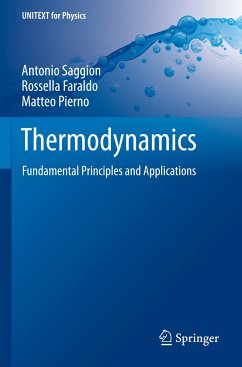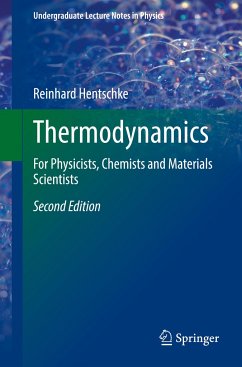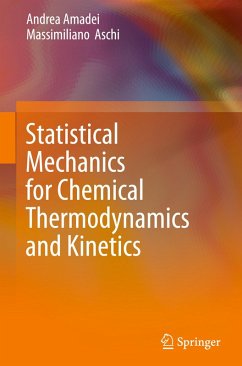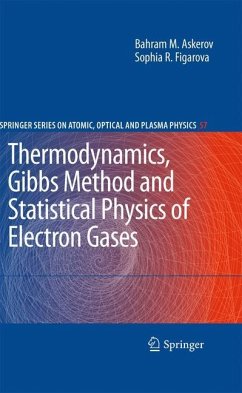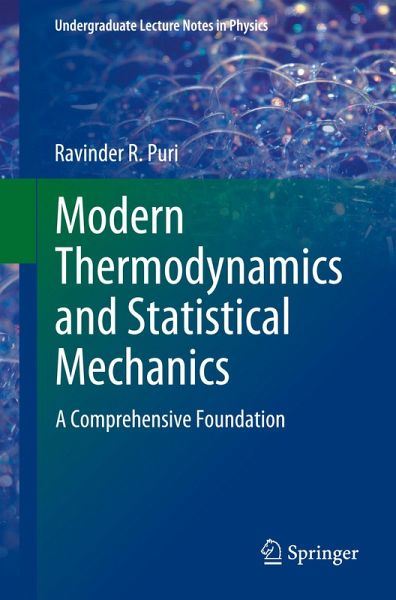
Modern Thermodynamics and Statistical Mechanics
A Comprehensive Foundation

PAYBACK Punkte
23 °P sammeln!
This undergraduate-level textbook offers a unique and in-depth approach to the study of thermodynamics and statistical mechanics. It covers the fundamentals of thermodynamics using both traditional and postulatory approaches, including origin of the concept of thermodynamic entropy, Euler's equation, Gibbs-Duhem relations, stability of equilibrium, and the concept of thermodynamic potentials, and that of independent thermodynamic observables. The book then delves into the microscopic foundation of thermodynamics, starting with the kinetic theory and highlighting its historical development. Bol...
This undergraduate-level textbook offers a unique and in-depth approach to the study of thermodynamics and statistical mechanics. It covers the fundamentals of thermodynamics using both traditional and postulatory approaches, including origin of the concept of thermodynamic entropy, Euler's equation, Gibbs-Duhem relations, stability of equilibrium, and the concept of thermodynamic potentials, and that of independent thermodynamic observables. The book then delves into the microscopic foundation of thermodynamics, starting with the kinetic theory and highlighting its historical development. Boltzmann's concept of entropy is explored, along with its applications in deriving Planck's, Bose's, Bose-Einstein, and Fermi-Dirac distribution functions. The formal structure of classical and quantum statistical mechanics is built based on the concept of statistical entropy and the maximum entropy principle and used to investigate in detail the thermodynamic properties of ideal classicaland quantum systems. The book also covers phase transitions, simple theory of critical phenomena, and the theory of interacting van der Waals gases. Throughout the text, the book provides historical context, enriching the reader's understanding. This textbook is a valuable resource for undergraduate physics students, offering comprehensive coverage, including overlooked topics, and a historical perspective on thermodynamics and statistical mechanics.



